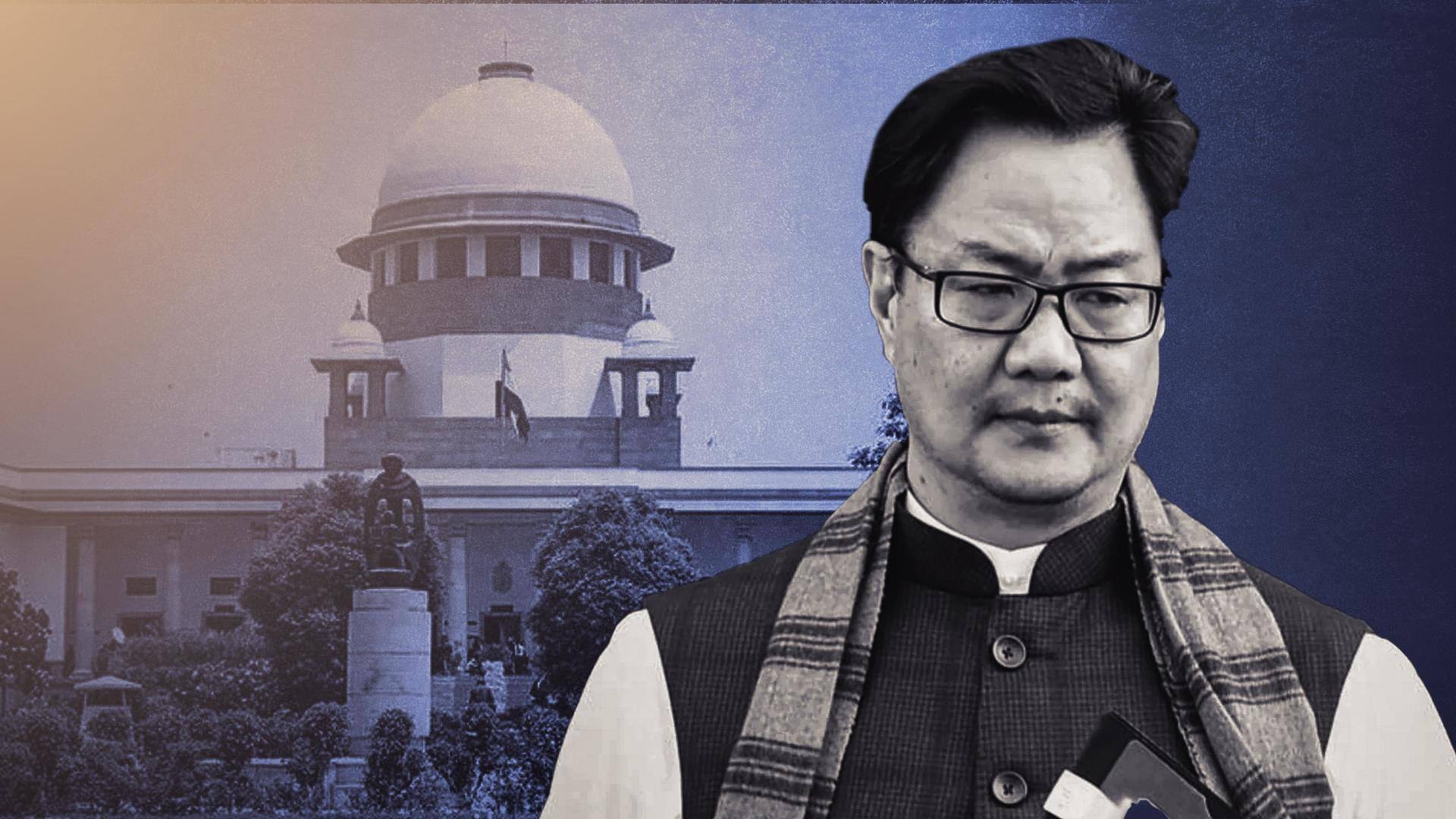
It's Centre v/s SC collegium after govt returns 19 recommendations
What's the story
The Central government has returned 19 of the 21 names recommended by the Supreme Court collegium for the appointment of High Court justices, The Indian Express reported.
The recommendations, according to the report, were returned on November 28, hours before the Supreme Court hearing on judge selections.
At least ten names were stalled by the government despite collegium reaffirming them in July this year.
Context
Why does this story matter?
The development comes nearly a month after Union Law Minister Kiren Rijiju stated that India is the only country where judges appoint judges, calling the collegium system "opaque."
Since 2014, the Centre has been at odds with the judiciary, which accused it of attempting to control judicial appointments by enacting the National Judicial Appointments Commission (NJAC) Bill and sitting on recommendations without explanation.
Details
Law Ministry accepts just two recommendations
The Law Ministry accepted only two of the collegium's recommendations. Rijiju verified the development in a tweet.
These are for the appointment of Bombay High Court counsel Santosh Govind Chapalgaonkar and Milind Manohar Sathaye.
Five of the ten names returned after reiteration belonged to Allahabad HC, two to Calcutta HC, two to Kerala HC, and one to Karnataka HC.
Information
Promotion of [homo]sexual advocate Saurabh Kirpal also delayed
The pending recommendation includes advocate Saurabh Kirpal, who openly admitted to being gay.
Kirpal was recommended for promotion as Delhi HC judge by the collegium, which was led by then-Chief Justice of India (CJI) NV Ramana.
The collegium's decision on September 26 to suggest Justice Dipankar Datta, Chief Justice of Bombay High Court, as a Supreme Court judge is also waiting with the government.
Action
SC bench sought answers from government
Following the continuous delay, the Supreme Court sought answers.
On November 11, its two-judge bench headed by Justice Sanjay Kishan Kaul issued a "simple notice" to the ministry regarding the delay.
It had asked the Justice Secretary and the Additional Secretary (Administration and Appointment) to respond before November 28 on why the government was dragging its feet on the collegium recommendations.
Binding
Centre bound to accept collegium recommendation
As per the procedure, if the decision has been reaffirmed, the government is bound to accept it.
The Memorandum of Procedure (MoP) says, "The Union Minister of Law, Justice and Company Affairs, would then put up as early as possible, preferably, within 3 weeks, the recommendation of the CJI to the Prime Minister who will advise the President in the matter of appointment."
About
What is the collegium system?
The collegium system allows the Chief Justice of India and a panel of four senior-most judges of the Supreme Court to recommend appointments and transfers of judges.
The collegium system was framed by the Supreme Court judgments in the 'Three Judges Case' (October 28, 1998).
The collegium system was criticized by the Centre for creating an empire within the empire.
Legislation
What is NJAC Bill?
The NJAC bill was introduced in the Lok Sabha on August 11, 2014, and sought the formation of the commission and procedure for the appointment and transfer of judges.
The commission comprises the CJI, two senior-most judges of SC after the CJI, the Law Minister, and two eminent persons.
However, Supreme Court quashed it after finding it "unworkable."